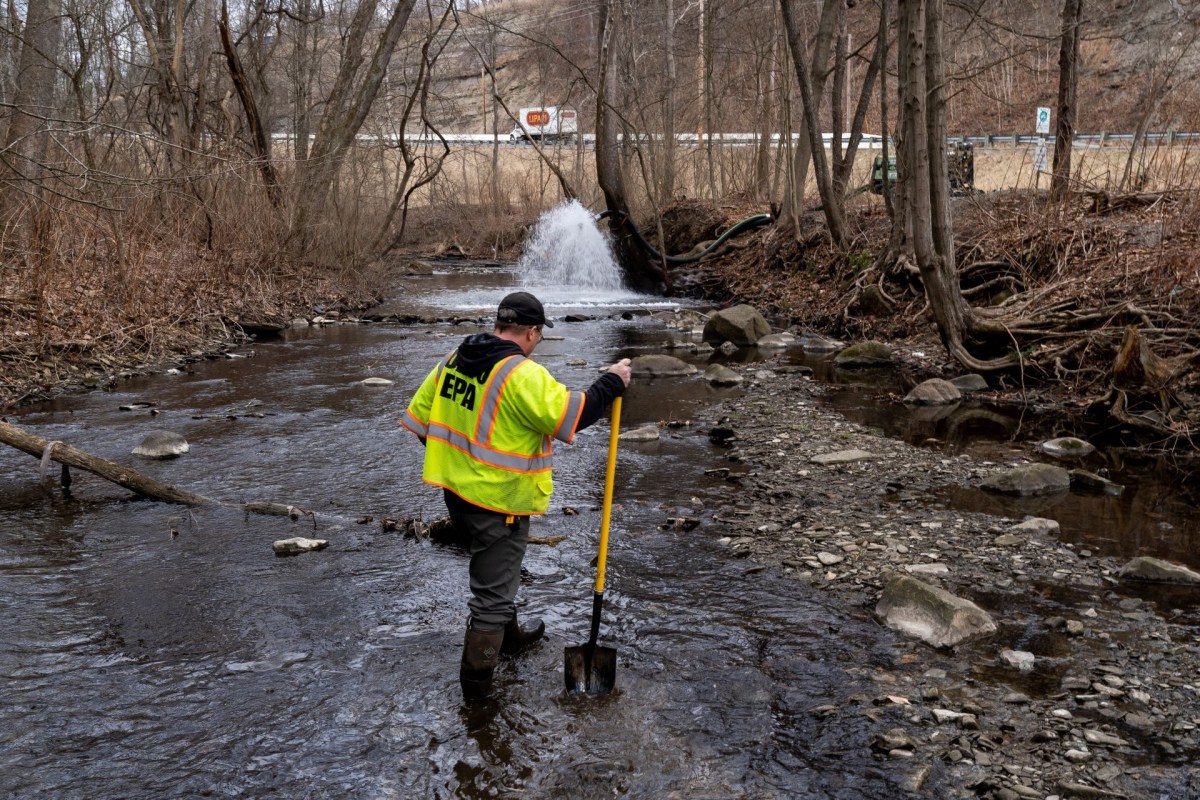It has been a month since the Feb. 3 derailment of a Norfolk Southern train carrying toxic chemicals in East Palestine, Ohio. Since then, over 43,000 aquatic animals have died in and around East Palestine, according to the Ohio Department of Natural Resources (ODNR).
The derailment killed an estimated 38,222 minnows and around 5,550 other small fish, crayfish, amphibians, and macroinvertebrates. ODNR's research claims that these animals died immediately, meaning animals in the affected streams are not still suffering from the incident.
One of the leaked chemicals was vinyl chloride — a toxic flammable gas used to create a commonly-used hard plastic called polyvinyl chloride (PVC).
Authorities carried out a controlled release of the vinyl chloride to neutralize burning the cargo and prevent an explosion. The EPA identified four other substances that leaked into the air, soil, and water during the derailment.
Based on visual observations of sampling sites, the ODNR initially reported only 3,500 dead animals. But it quickly became clear that over 10 times as many animals were killed following the derailment.
Sam Hall, a student at West Virginia University, told Cleveland 19 News that he found tens of thousands of dead aquatic animals in a single weekend.
"There's dead frogs, dead crayfish, dead fish, everything in the creek is dead," Hall said. "It was all just sitting on the bottom covered in fungus rotting, and there's just a terrible chemical smell through this entire valley."
People have made several anecdotal reports of pets in and near the derailment site becoming sick and dying. As a precautionary measure, the ODNR disposed of all the collected poisoned wildlife and removed additional dead fish from the impacted waterways.
ODNR doesn't believe the derailment of chemical spill directly harmed any terrestrial wildlife. The agency collected dead land animals — three dead birds and one dead opossum, but ODNR Agency Director Mary Mertz said they contained no evidence of chemical poisoning. Mertz also reported none of the species killed are threatened or endangered.
"Ecosystem restoration is not instantaneous ... we know it won't be quick," Mertz said. "[But] we do expect a full recovery eventually, and we're going to keep sharp eyes on it."
Join our free newsletter for cool news and actionable info that makes it easy to help yourself while helping the planet.









